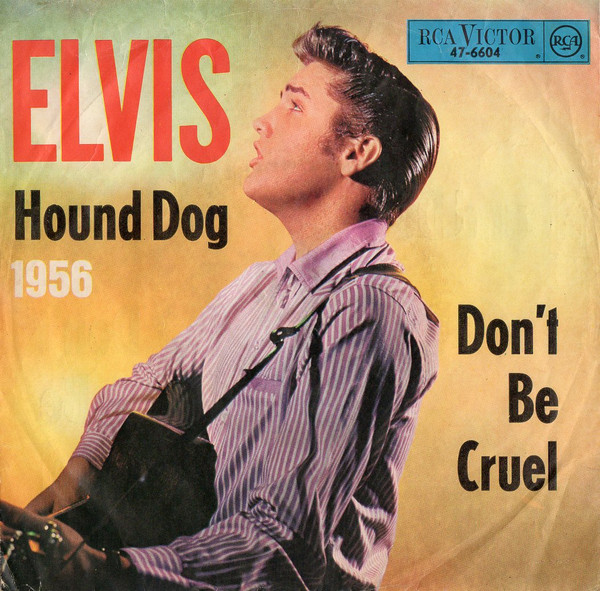Elvis Presley’s rendition of “Hound Dog” stands as a defining moment in the history of popular music, igniting a cultural revolution and reshaping the musical landscape of the 20th century. Originally recorded by Big Mama Thornton in 1952, Elvis’s electrifying interpretation of the song in 1956 catapulted him to superstardom and solidified his status as the King of Rock and Roll. In this comprehensive exploration, we delve into the origins, impact, and enduring legacy of “Hound Dog” by Elvis Presley.
The Birth of a Classic:
“Hound Dog” was originally written by Jerry Leiber and Mike Stoller and recorded by rhythm and blues singer Big Mama Thornton in 1952. With its raw energy, assertive lyrics, and powerful vocals, Thornton’s version of “Hound Dog” struck a chord with audiences, becoming a hit on the rhythm and blues charts. However, it was Elvis Presley’s electrifying interpretation of the song that would catapult it to iconic status and forever change the course of popular music.
Elvis’s Electrifying Performance:
Elvis’s recording of “Hound Dog,” released in 1956 as the B-side to “Don’t Be Cruel,” captured the imagination of listeners with its infectious rhythm, dynamic vocal delivery, and rebellious attitude. Backed by his band, the Blue Moon Boys, Elvis infused the song with a sense of urgency and vitality that resonated with audiences eager for a new sound and a new voice. From the opening guitar riff to the explosive climax, Elvis’s performance of “Hound Dog” exuded a raw, primal energy that captured the spirit of rock and roll rebellion.
Cultural Impact:
“Hound Dog” became an instant sensation, topping the charts and solidifying Elvis’s status as a cultural icon. Its infectious rhythm and catchy lyrics made it a favorite among teenagers, while its bold, assertive vocals and defiant attitude embodied the rebellious spirit of the rock and roll movement. The song’s release coincided with the rise of youth culture and the emergence of rock and roll as a dominant force in popular music, making it a symbol of teenage rebellion and defiance against the status quo.
Enduring Legacy:
More than six decades after its release, “Hound Dog” remains a timeless classic and a cornerstone of the rock and roll canon. Its influence can be heard in countless recordings across genres, from rock and pop to blues and punk, attesting to its enduring appeal and cultural significance. The song’s iconic status has been further cemented by its inclusion in numerous films, TV shows, and commercials, ensuring its continued relevance and visibility in popular culture.
Conclusion:
“Hound Dog” by Elvis Presley stands as a testament to the transformative power of music to inspire, provoke, and unite. From its origins as a rhythm and blues hit to its transformation into a rock and roll anthem, the song embodies the spirit of rebellion, defiance, and self-expression that defines the genre. With its infectious rhythm, dynamic performance, and timeless message of empowerment, “Hound Dog” continues to resonate with audiences worldwide, reminding us of the enduring legacy of Elvis Presley and the enduring power of rock and roll to transcend boundaries, unite generations, and shape cultural identity.
